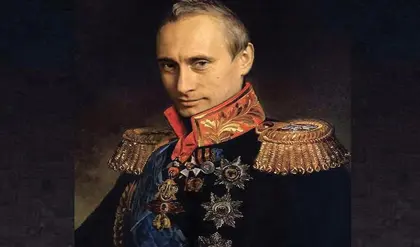Everyone has difficulty labeling the former Soviet Union, and it is even more difficult to name studies of this area. Putin’s war of aggression against Ukraine might have brought about an end to Russocentric post-Soviet regional studies.
JOIN US ON TELEGRAM
Follow our coverage of the war on the @Kyivpost_official.
Todd Prince of Radio Free Europe/Radio Liberty has just published a pertinent article on this topic, “Moscow's Invasion of Ukraine Triggers 'Soul-Searching' at Western Universities as Scholars Rethink Russian Studies.” He focuses on the all-embracing U.S. Association for Slavic, East European, and Eurasian Studies (ASEEES)" to which I have long belonged. In November, it will hold its annual big convention in Philadelphia, which it is devoted to decolonization. Good luck with that! My suspicion is that the Russians and Ukrainians involved will part company for good.
For the last five decades, I have been associated with a host of East European regional studies centers and associations, which have repeatedly changed names. In the old days, the standard labels were “Soviet studies” or “East European studies.” It became more difficult after 1991. My own institute in Stockholm became first the Institute of East European Economics, and then the Stockholm Institute of Transition Economics, avoiding naming any country.
The British journal Soviet Studies became Europe-Asia Studies. I used to be on the editorial board of the U.S. journal Soviet Economics, which naturally became Post-Soviet Economics. The European Bank for Reconstruction and Development started the journal Economics in Transition, and this geographically neutral title holds.

Russia Claims Capture of Two More East Ukraine Villages
A Russian imperial perspective has dominated Soviet and post-Soviet studies. When I was a student at Oxford many years ago, I had two colleague graduate students of Ukrainian ancestry who bitterly complained about the Russo-centric nature of the Soviet studies.
I have been associated with various think tanks and institutions here in Washington, and they have always felt uneasy about their names. All have felt compelled to rename their centers of Soviet studies, but none has found a satisfactory solution. “Post-Soviet” is out. It gave way to "Russian & Eurasian Studies," however Eurasian does not mean much to most Americans. Universities tend to add “Russian and Eurasian” or more regional studies, but then Ukrainians and others ask why is Russia specifically singled out? Where were Ukraine, the Caucasus and Central Asia? They have a point.
As Todd so rightly points out, it is difficult to justify the kind of regional studies that ASEEES represents any longer after Russia’s war of aggression against Ukraine. Ukrainian scholars will not agree even to be in the same room as Russian imperial scholars. Can ASEEES justify its existence any longer? Probably not. Wars matter.
Pan-Slavism is ancient history. Poles and Russians have never gotten along, so the idea of Slavic or Slavonic studies make no sense outside of linguistics, and most of ASEEES activities are not about linguistics. Now Ukraine will want to cut itself out as well, even more so than the Poles. The Belarusians, languishing under the oppressive regime of Russia’s vassal Aleksander Lukashenko, may also be waiting for the day when they too can turn westward.
All the non-Slavic people in the region, from Hungarians to the Caucasians, to the Central Asians have always reacted against this label. Now Slavic studies belong to the linguistic departments and nowhere else.
As Russia has become entirely backward-looking - and generally backwards - Central Asians prefer anything but. A long-standing ideal has been Singapore, but China, however intimidating, looks more serious than Putin's Russia. Politically, they turn to Asian and Pacific organizations. International organizations and governments have passed along Central Asia to their Asian departments.
The Russian-led Collective Security Treaty Organization appears no longer to have any reason to exist after Russia failed to defend its loyal member Armenia against Azerbaijan. Everybody seems dissatisfied with the also-Russian-led Eurasian Economic Union, so they would presumably like it to end and allow them freer trade with developing countries.
Eastern Europe, including Ukraine, Moldova, and the Caucasus, turn to Europe and want to join the European Union. The only sad exceptions are the two pro-Putin states, Viktor Orban's Hungary and Slobodan Milosevic's (Aleksandar Vucic's) Serbia, who may be left to their fate until they benefit from a regime change. The unification of Europe is such a strong trend that all these countries would like to be part of European political and economic studies as far as regional studies are relevant in international organizations, universities and think tanks.
That leaves Russia on its own until Putin's regime collapses and Russia may qualify as an EU candidate and Russian studies may become a part of European studies, as the late Martin Malia long ago claimed it belonged. It remains to be seen how the two main funders of pro-Russian studies will act. They are the Carnegie Corporation of New York and the Koch Foundation.
The views expressed are the author’s and not necessarily of Kyiv Post.
You can also highlight the text and press Ctrl + Enter






